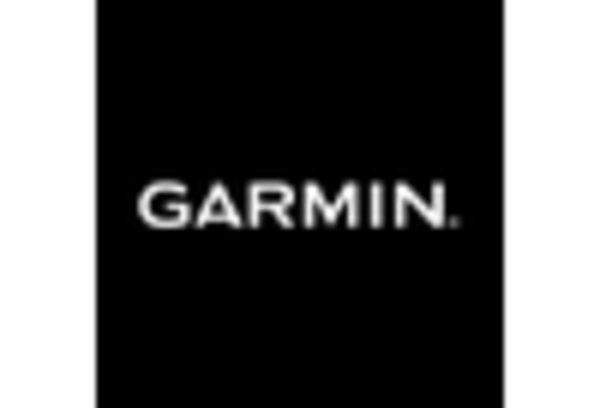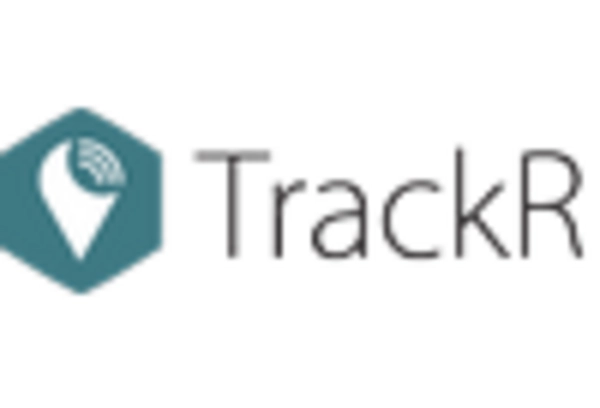Integration with Smart Home Systems
The integration of smart trackers with smart home systems is emerging as a key driver in the Smart Tracker Market. As households adopt more connected devices, the synergy between smart trackers and home automation systems is becoming increasingly apparent. This integration allows users to monitor their belongings and receive alerts through their smart home interfaces, enhancing convenience and security. Market data suggests that the demand for smart home integration features is likely to increase by 40% over the next few years, as consumers seek cohesive solutions that simplify their lives. This trend not only boosts the appeal of smart trackers but also positions them as integral components of the smart home ecosystem. Consequently, the Smart Tracker Market is expected to benefit from this growing trend, as manufacturers innovate to create products that seamlessly connect with existing smart home technologies.
Growing E-commerce and Online Retail Channels
The expansion of e-commerce and online retail channels is playing a crucial role in the Smart Tracker Market. As consumers increasingly turn to online platforms for their shopping needs, the accessibility of smart trackers has improved significantly. This shift is evidenced by a reported increase in online sales of tracking devices, which have risen by approximately 30% in the last year alone. Retailers are capitalizing on this trend by offering a wider range of products and competitive pricing strategies. Additionally, the convenience of online shopping is attracting a broader demographic, including tech-savvy individuals and those seeking practical solutions for everyday challenges. Consequently, the Smart Tracker Market is poised for continued growth as e-commerce becomes a dominant sales channel.
Rising Demand for Personal Tracking Solutions
The Smart Tracker Market is experiencing a notable surge in demand for personal tracking solutions. This trend is largely driven by an increasing awareness of personal safety and security among consumers. As individuals seek to monitor their belongings and loved ones, the adoption of smart trackers has escalated. Recent data indicates that the market for personal tracking devices is projected to grow at a compound annual growth rate of approximately 15% over the next five years. This growth is indicative of a broader societal shift towards enhanced safety measures, where smart trackers play a pivotal role in providing peace of mind. Consequently, manufacturers are focusing on developing innovative features that cater to this rising demand, thereby propelling the Smart Tracker Market forward.
Increased Focus on Health and Fitness Tracking
The Smart Tracker Market is witnessing a heightened focus on health and fitness tracking solutions. As consumers become more health-conscious, the demand for devices that monitor physical activity, location, and overall well-being is on the rise. Smart trackers that offer features such as heart rate monitoring, step counting, and sleep tracking are gaining popularity among fitness enthusiasts. Market Research Future indicates that the health and fitness segment of the smart tracker market is expected to grow by over 25% in the next few years. This trend reflects a broader societal shift towards proactive health management, where smart trackers serve as essential tools for individuals aiming to achieve their fitness goals. As a result, manufacturers are increasingly investing in research and development to enhance the capabilities of these devices.
Technological Advancements in Tracking Devices
Technological advancements are significantly influencing the Smart Tracker Market. Innovations in GPS technology, Bluetooth connectivity, and battery efficiency are enhancing the functionality and appeal of smart trackers. For instance, the integration of advanced sensors allows for real-time tracking and improved accuracy, which is increasingly sought after by consumers. Furthermore, the development of mobile applications that complement these devices is creating a more user-friendly experience. Market data suggests that the introduction of new technologies could potentially increase the adoption rate of smart trackers by up to 20% in the coming years. As technology continues to evolve, the Smart Tracker Market is likely to witness a wave of new products that cater to diverse consumer needs.














